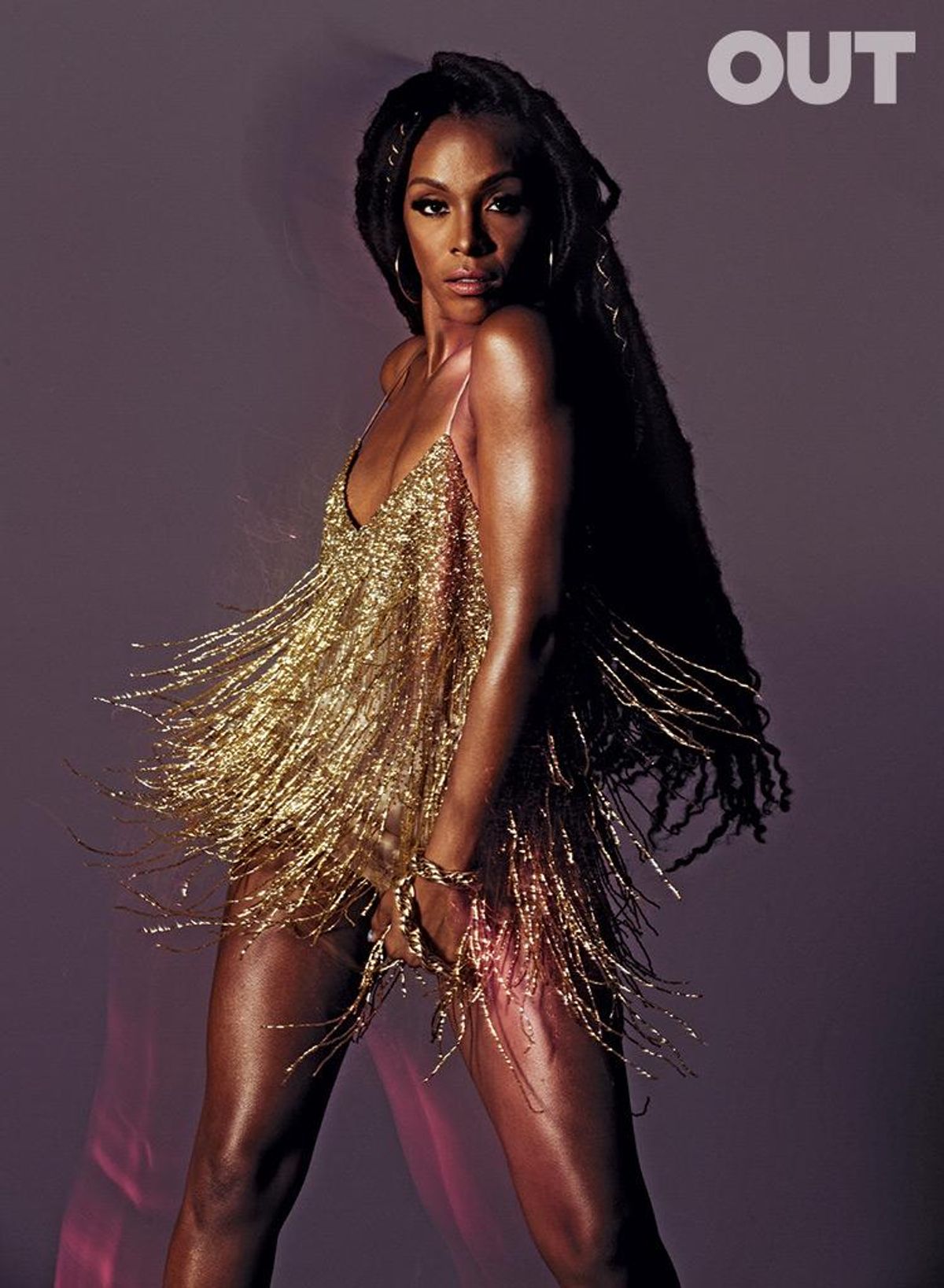Photography by Ramona Rosales. Styling by Alison Brooks. Hair: Nina J. Makeup: Nimai. Dress available at violetta group. Vintage jumpsuit.
Dawn Richardknows the future cannot exist without the past. She knows we can only begin to contemplate what's next by making peace with what was and what was never meant to be. "That early part of you is the future you," says the singer-songwriter. "What I started with is the reason I am what I am now, and that self-acceptance is true resurrection."
This future, enlightened version of herself is the one reflected in Richard's new album, Redemption, the final installment of the sweeping trilogy she introduced in 2013 with Goldenheart, an audacious collection of atmospheric R&B that came cloaked in battle metaphors and medieval imagery. If that project was the sound of a fearless warrior determined to forge her own path, its propulsive follow-up, Blackheart, was the expression of her frantic search through the wilderness, the tale of the warrior unraveling.
Together, the two LPs represent a hero's rise and fall, and they trace Richard's own highs and lows in the music industry. She got her start more than a decade ago in the girl group Danity Kane, a product of P. Diddy's reality show Making the Band. But the boilerplate pop of Bad Boy Records never felt like her calling, so she went solo, recasting her persona and releasing and promoting Goldenheart on her own. Existing as an independent oddity, however, proved a struggle and prompted her 2014 return to Danity Kane, a reunion that spawned a dud of a comeback album and sparked an alleged studio brawl between Richard and a fellow band member. So she fled the mainstream yet again, redoubled her efforts to craft Blackheart's sonic fantasia, and never looked back.
Blackheart was a triumph: desperate but bracing, unclassifiable but enthralling. Richard, who now records as DWN, brings that same energy and ingenuity to Redemption, but by folding more live instruments into the mix and expanding her vision to tackle the current state of affairs, she offers her most assured, accessible, and vital work to date.
"I was taking electronic music -- 'new' music -- to another level by adding the sounds I grew up with," says Richard, who teamed with experimental producer Machinedrum to establish Redemption's synthetic framework, then enlisted several musicians from her native New Orleans to flesh it out with violins, brass, keyboards, and percussion. Her goal: to create what she calls an "unhinged, unselfish, unapologetic celebration."
For Richard, New Orleans is the embodiment of that, and of redemption. It is not only the place where she fell in love with Oscar Wilde and flamboyant fashion -- her grandmother has a doctorate in library sciences, and her uncle designed carnival costumes for the Mardi Gras Indians -- but also a city that survived Hurricane Katrina and gave birth to the Bounce scene, led by feted trans and queer performers like Big Freedia. "That was part of our culture, some of our best music," Richard says. "There was no stigma. If you could make our booty pop, then we were totally fine with you."

This idea of a color- and gender-blind world, and the obstacles to achieving it, anchors Redemption. It is, in fact, the heart of the bigger story she's been telling throughout the trilogy. "This is not just about me," Richard says. "This is about being black in America. This is about being a woman. This is about being gay. This is about being straight. This is about being cast out because you're fluid or too white or too black or too Spanish."
Her favorite, most direct track, "LA," describes her anxiety over racial profiling and the threat of police brutality in Los Angeles, where she now lives. "If the cops pull you over, you don't know if you'll ever see your friend again because you're two black kids rolling down L.A. on La Brea," Richard says. "I don't know how I'm looked at in the streets of L.A., if I'm celebrated or mocked. I don't know if L.A. will be as kind to me as I want to be to it. That's the price that we pay for being artists here."
The double meaning of "LA"'s refrain, "These L.A. streets are killing me," is clever and haunting. But Richard's most powerful sleight of hand on Redemption arrives in the last minute of the song, when the siren-like cacophony of pulsating drums and electric guitar fades out and a single soulful trumpet, played by New Orleans jazz musician Trombone Shorty, blares over the faint hum of another "LA" street. At that moment, Richard is longing for her original home in Louisiana -- "the real LA," she says. She can't be there, but remembering where she came from, and how it shaped her, is her armor. It gives her the strength to soldier on.
Redemption will be released on Friday, November 18. Pre-order here.
Like what you see here? Subscribe and be the first to receive the latest issue of Out. Subscribe to print here and receive a complimentary digital subscription.



















































































